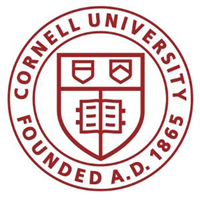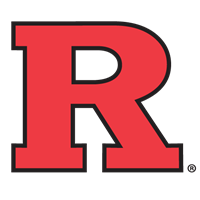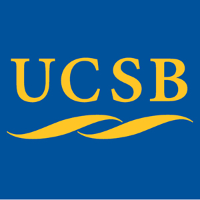What do they do?
Examine, evaluate, and investigate eligibility for or conformity with laws and regulations governing contract compliance of licenses and permits, and perform other compliance and enforcement inspection and analysis activities not classified elsewhere.
Also known as:
Driver Examiner, Driver License Agent, Driver License Examiner, Examiner, License Examiner, License Registration Examiner, Licensing Analyst, Motor Vehicle Clerk, Public Service Representative (PSR), Transportation Services Representative (TSR)
-
5.4%
Change
Ranks #41 in job growth rate740Job Openings
Ranks #21 in net job growth
-
Yale University
New Haven, CT
-
Cornell University
Ithaca, NY
-
Rutgers University-New Brunswick
New Brunswick, NJ
-
University of Vermont
Burlington, VT
-
University of California-Santa Barbara
Santa Barbara, CA
Looking for colleges that offer a specific major? Use the College Match Tool to find your best-matched schools and discover your estimated Net Price!
- Doctorate or Professional Degree (6%)
- Master's degree (18%)
- Bachelor's degree (40%)
- Associate's degree (8%)
- Some college, no degree (18%)
- High school diploma equivalent (9%)
- Less than high school diploma (1%)
Most Popular Majors that prepare Compliance Officers
-
#1
-
Degrees Granted
14,634
-
Female Students
11,025
-
Male Students
3,609
-
Median Starting Salary
$40,400
-
-
#2
-
Degrees Granted
9,112
-
Female Students
5,380
-
Male Students
3,732
-
Median Starting Salary
$43,300
-
-
#3
-
Degrees Granted
8,920
-
Female Students
5,779
-
Male Students
3,141
-
Median Starting Salary
$44,450
-
-
#4
-
Degrees Granted
1,726
-
Female Students
929
-
Male Students
797
-
Median Starting Salary
$40,400
-
-
#5
-
Degrees Granted
25
-
Female Students
21
-
Male Students
4
-
Median Starting Salary
$37,800
-
People in this career often have these skills:
- Active Listening - Giving full attention to what other people are saying, taking time to understand the points being made, asking questions as appropriate, and not interrupting at inappropriate times.
- Reading Comprehension - Understanding written sentences and paragraphs in work-related documents.
- Speaking - Talking to others to convey information effectively.
- Critical Thinking - Using logic and reasoning to identify the strengths and weaknesses of alternative solutions, conclusions, or approaches to problems.
- Social Perceptiveness - Being aware of others' reactions and understanding why they react as they do.
- Judgment and Decision Making - Considering the relative costs and benefits of potential actions to choose the most appropriate one.
- Writing - Communicating effectively in writing as appropriate for the needs of the audience.
People in this career often know a lot about:
- Law and Government - Knowledge of laws, legal codes, court procedures, precedents, government regulations, executive orders, agency rules, and the democratic political process.
- English Language - Knowledge of the structure and content of the English language including the meaning and spelling of words, rules of composition, and grammar.
- Customer and Personal Service - Knowledge of principles and processes for providing customer and personal services. This includes customer needs assessment, meeting quality standards for services, and evaluation of customer satisfaction.
- Public Safety and Security - Knowledge of relevant equipment, policies, procedures, and strategies to promote effective local, state, or national security operations for the protection of people, data, property, and institutions.
People in this career often have talent in:
- Oral Comprehension - The ability to listen to and understand information and ideas presented through spoken words and sentences.
- Written Comprehension - The ability to read and understand information and ideas presented in writing.
- Oral Expression - The ability to communicate information and ideas in speaking so others will understand.
- Speech Clarity - The ability to speak clearly so others can understand you.
- Inductive Reasoning - The ability to combine pieces of information to form general rules or conclusions (includes finding a relationship among seemingly unrelated events).
- Near Vision - The ability to see details at close range (within a few feet of the observer).
- Speech Recognition - The ability to identify and understand the speech of another person.
- Written Expression - The ability to communicate information and ideas in writing so others will understand.
- Problem Sensitivity - The ability to tell when something is wrong or is likely to go wrong. It does not involve solving the problem, only recognizing that there is a problem.
- Deductive Reasoning - The ability to apply general rules to specific problems to produce answers that make sense.
- Far Vision - The ability to see details at a distance.
People in this career often do these activities:
- Review license or permit applications.
- Collect payments for goods or services.
- Inform individuals or organizations of status or findings.
- Administer personnel recruitment or hiring activities.
- Examine financial records.
- Inspect facilities, equipment or supplies to ensure conformance to standards.
- Advise others on legal or regulatory compliance matters.
- Prepare research reports.
- Communicate with government agencies.
- Conduct eligibility or selection interviews.
This page includes data from:

 Occupation statistics: USDOL U.S. Bureau of Labor Statistics Occupational Employment Statistics
Occupation statistics: USDOL U.S. Bureau of Labor Statistics Occupational Employment Statistics









